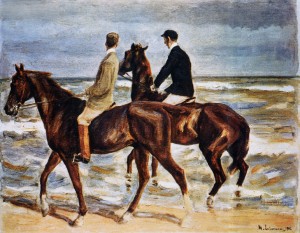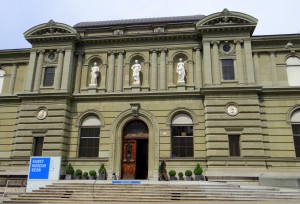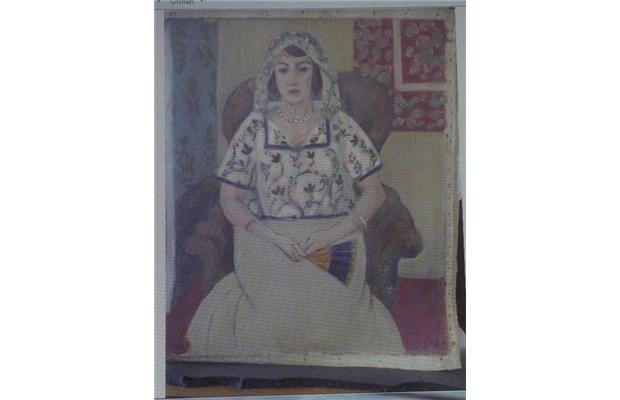There have been multiple and conflict reports in the last 48 hours about whether the Kunstmuseum Bern had reached a decision to accept the inheritance from and appointment as heir by Cornelius Gurlitt. Gurlitt, who died in early May shortly after reaching an agreement with the Bavarian prosecutor concerning the 1,280 works of art seized from his apartment on suspicion of Nazi-looting connections, unexpectedly named the Swiss museum as the sole beneficiary of his will, and as his heir and representative. Just last week, the news was that the Kunstmuseum had resolved to decide by late November, no later than six months after being advised of Gurlitt’s bequest.
Conflicting Reports About Possible Acceptance of Gurlitt Bequest by Kunstmuseum Bern
Topics: Reuters, Schwabinger Kunstfund, Hildebrand Gurlitt, Cornelius Gurlitt, Nazi-looted art, Gurlitt Collection, Tages Anzeiger, Munich, Christoph Schäublin, Restitution, Bavaria, Ruth Gilgen Hamisultane, World War II, Swiss, Austria, Sonntagszeitung, Kunstmuseum Bern, Berner Zeitung, Zürich, Nazi Raubkunst, Münchner Kunstfund
Bavaria and Germany Move to Dismiss Gurlitt Litigation, But Raise Questions About Why They Are Resisting a Lawsuit Over Painting that Task Force Recommended They Restitute to David Toren
To date, only one lawsuit has been filed in the United States related to the seizure from Cornelius Gurlitt’s apartment of some 1,280 works of art, a story that broke a year ago with the concern about the objects’ Nazi-looting connections via his father Hildebrand Gurlitt (the view here last winter was that the longer Germany failed to address the situation comprehensively, the more likely such U.S. litigation became). That lawsuit, brought by David Toren, seeks the return of Two Riders on the Beach (Zwei Ritter am Strand), by Max Liebermann. Germany and Bavaria moved to dismiss the case yesterday, which is particularly puzzling given that among the very few determinations made by the Gurlitt Task Force (in August), it is that the Liebermann should be returned. The cynical view is that they are looking to forestall future claims, but it is past time for the painting to be returned.
Topics: Schwabinger Kunstfund, Hildebrand Gurlitt, Cornelius Gurlitt, Breslau, Max Liebermann, Germany, Silesia, Gurlitt Collection, Foreign Sovereign Immunities Act, bailment, Entartete Kunst, FSIA, Restitution, Bavaria, David Toren, Zwei Ritter am Meer, Free State of Bavaria, 28 U.S.C. § 1605(a)(2), Looted Art, World War II, Altmann v. Republic of Austria, Freistaat Bayern, Kunstmuseum Bern, Riders on the Beach, Federal Republic of Germany, Raubkunst, David Friedmann, Münchner Kunstfund
Germany Announces "Center for Cultural Property Losses": Real Progress or Window Dressing?
After numerous intimations by German Minister of Culture Monika Grütters, the German federal cabinet announced on Wednesday the official formation of the German Center for Cultural Property Losses (Deutsches Zentrum Kulturgutverluste). Citing its “awareness of the special responsibility for the reworking of Nazi art theft,” the ruling CDU coalition issued this statement (my translation):
Topics: Schwabinger Kunstfund, Hildebrand Gurlitt, Cornelius Gurlitt, Deutsches Zentrum Kulturgutverluste, Germany, Minister of Culture Monika Grütters, Nazi-looted art, Gurlitt Collection, Lex Gurlitt, Koordinierungsstelle für Lost Art in Magdeburg, Magdeburg, enteignete Kunst, Gurlitt, NS Raubkunst, Restitution, Task Force, Bundesländer, Lost Art, www.lostart.de, Limbach Commission, Center for Cultural Property Losses
Kunstmuseum Bern Still Undecided About Gurlitt Inheritance as Regional Politics Loom
Almost none of the legal issues flowing from the seizure of some 1,280 works of art from Cornelius Gurlitt’s apartment in 2012, his agreement with the Bavarian prosecutor, and the ongoing review of the collection for connections to Nazi looting can be resolved until his named heir—the Kunstmuseum Bern—decides whether or not to accept that appointment. When the one-year review deadline passes (with only two public recommendations made so far), it is entirely unclear who will stand for Gurlitt’s "rights" over what is left.
Topics: Schwabinger Kunstfund, Beat Giauque, Cornelius Gurlitt, Grosser Rat, Nazi-looted art, Gurlitt Collection, canton, Paul Klee, Ittigen, Trubschachen, Samuel Leuenberger, Kunstmuseum Bern, Gurlitt Erbe, Museums, Berner Zeitung, Münchner Kunstfund, Kanton Bern
Limbach Commission Rules Against Claimants to Restitution of “Three Graces” by Lovis Corinth in Unpersuasive Opinion
The German Advisory Commission for the Return of Cultural Property Seized as a Result of Nazi Persecution, Especially Jewish Property (Beratende Kommission) has issued its latest decision concerning allegedly Nazi-looted art in German museums. For the second case in a row after the widely (and wisely) derided opinion not to restitute the Welfenschatz or Guelph Treasure at the Stiftung Preussischer Kulturbesitz in Berlin, the commission (known for its presiding member, former German Supreme Constitutional Court judge Jutta Limbach) has recommended against restitution, this time over the claim by heirs of Clara Levy to The Three Graces (Drei Grazien) by Lovis Corinth (1902/1904). The decision (available only in German) is riddled with poor logic and basic historical errors. In short, while it may be that the painting was indeed delivered to Clara Levy’s daughter in the United States at Clark’s express instruction, that is far less clear than the commission states, and its decision further makes a number of assumptions about the circumstances of Jews in occupied or about-to-be occupied territories that undermine its credibility considerably.
Topics: Berlin, Else Bergmann, Schleifmühle, Hildebrand Gurlitt, Cornelius Gurlitt, Ludwig Levy, Fritz Levy, Rita Hubbard, Germany, Nazi-looted art, bill of lading, Especially Jewish Property, Buchholz Gallery, Madame Soler, German Advisory Commission for the Return of Cultu, San Francisco, Entartete Kunst, Beratende Kommission, Stiftung Preussischer Kulturbesitz, FSIA, Curt Valentin, expropriation exception”, Gurlitt, Restitution, Max Huggler, Mendelssohn-Bartholdy, Clara Levy, Sigfried Rosengart, Luxembourg, Henry Zacharias, Compagnie Generale Transatlantique Hol Lesquette, World War II, Foreign Sovereign Immunities, Pinakothek der Moderne, degenerate art, beschlagnahmte Kunst, Jutta Limbach, Kunstmuseum Bern, Drei Grazien, Pablo Picasso, Lovis Corinth, Museums, Three Graces, Bavarian State Painting Collections, Federal Republic of Germany, Paula Levy, Kurt Buchholz, Welfenschatz, Limbach Commission, New York, Bayerische Staatsgemäldesammlungen
Curiouser and Curiouser: Still More Gurlitt Paintings Found, Nazi-Looting Connections Unknown
As if the Cornelius/Hildebrand Gurlitt saga needed any more complications as the world awaits the official decision by the Kunstmuseum Bern about whether to accept the appointment as Cornelius Gurlitt’s heir, even more artwork has apparently turned up. Der Spiegel, the Frankfurter Allgemeine Zeitung, and the Wall Street Journal have reported that one picture and several sculptures in the very apartment from which the original trove was seized more than two years ago. Among the sculptures are apparently a Degas and a Rodin. Nothing else seems known about the works or their ownership history, or whether they might be among works that Hildebrand Gurlitt sold or acquired as "degenerate" (side note: the Victoria and Albert Museum's copy of the Degenerate Art Action register is currently on display in New York at the Neue Galerie's exhibition of that title. While it is available online, it is most certainly worth a visit before the show ends).
Topics: Frankfurter Allgemeine Zeitung, Victoria and Albert Museum, Rodin, Cornelius Gurlitt, Schwabinger Kunstfund. Kunstfund München, Gurlitt Task Force, Fall Gurlitt, Gurlitt Collection, Degas, Hildebrand Gurlit, Entartete Kunst, Gurlitt, Restitution, Bavaria, Neue Galerie, Der Spiegel, Wall Street Journal, World War II, Degenerate Art Action, degenerate art, Kunstmuseum Bern, www.lostart.de, Nazi art, Raubkunst
Claims by Mendelssohn Bartholdy Heirs over Picasso "Madame Soler" Dismissed, Court Finds No FSIA Jurisdiction After Evidentiary Hearings
The U.S. District Court for the Southern District of New York has dismissed claims for ownership of Madame Soler by Pablo Picasso, currently at the Pinakothek der Moderne in Munich. Just as the relevance of Judge Jed Rakoff’s comments over another art restitution case brought by the heirs of Paul von Mendelssohn Bartholdy unexpectedly came to the fore recently, Judge Rakoff’s decision is now the most recent in a line of frustrations for the heirs of Mendelssohn Bartholdy, a victim of Nazi persecution in Berlin in the 1930s. The ramifications of this case may be fairly narrow, however, as the case was premised on allegations of specific transactions in New York rather than general allegations about the conduct of Germany. The claimants could appeal, or perhaps turn to the Limbach Commission if they could be heard (the Pinakothek is a subdivision of Germany for jurisdictional analysis, but it’s unclear at first blush if the Commission would view this claim as within its province).
Topics: Paul von Mendelssohn Bartholdy, Berlin, commercial activity exception, Cornelius Gurlitt, Florence Kesselstatt, Judge Jed Rakoff, Halldor Soehner, Saint-Jean-Cap-Ferrat, Julius Schoeps, Upper East Side, Prussia, Max Liebermann, Night Café, Gurlitt Collection, Foreign Sovereign Immunities Act, Preussen, France, State Paintings Collection, Madame Soler, Museum of Modern Art, Edelgard von Lavergne-Peguilhen, Van Gogh, Munich, Justin K. Thannhauser, FSIA, expropriation exception”, Nazi persecution, Boy Leading a Horse, Restitution, David Toren, Bayerische Staatsgemäldesammlung, Bavarian State Ministry for Education and Culture, Free State of Bavaria, World War II, Foreign Sovereign Immunities, Pinakothek der Moderne, Bayerisches Staatsministerium für Bildung und Kult, Bundesländer, Altmann v. Republic of Austria, Freistaat Bayern, Le Moulin de la Galette, Kurt Martin, München, Pablo Picasso, Federal Republic of Germany, Limbach Commission, Wissenschaft und Kunst
Gurlitt Task Force Makes First Determination that Matisse "Seated Woman" Was Stolen From Rosenbergs; Questions Remain About What Happens Next
The Gurlitt Task Force has issued its first public conclusion about the status of work amongst the collection found in Cornelius Gurlitt's apartment. Chair Ingebeborg Berggreen-Merkel issued a statement today that (my translation):
Topics: Schwabinger Kunstfund, Hildebrand Gurlitt, Cornelius Gurlitt, Gurlitt Task Force, Nazi-looted art, Gurlitt Collection, Entartete Kunst, Munich art trove, Anne Sinclair, NS Raubkunst, Restitution, World War II, Kunstmuseum Bern, Washington Principles, Sitzende Frau, Kunstfund München, Henri Matisse, Paul Rosenberg
The Next Gurlitt? Records from Weinmüller Auction House Made Available Online
Among the many legacies of the Gurlitt saga is a renewed focus on the importance of Nazi-approved art dealers like Karl Haberstock to the expropriation, outlawing, and re-sale of art either owned by Jewish collectors or which was thematically disapproved by the Nazi state. Relatedly, it has served as a reminder of the often cursory review that many of these men received after the war, and the acceptance of their proffered explanations, like those of Hildebrand Gurlitt, that “everything was destroyed in a bombing attack.” Now, the German Central Institute for Art history is set to make public the records of Adolf Weinmüller and his eponymous auction house (later renamed Neumeister).
Topics: Meike Hopp, Schwabinger Kunstfund, Was einmal war, Hildebrand Gurlitt, Cornelius Gurlitt, Zentralinstitut für Kunstgeschichte, Lost Art Database, Schwabinger Taskforce, Gurlitt Task Force, Nazi-looted art, Gurlitt Collection, Karl Haberstock, Kende, Entartete Kunst, Munich, Restitution, Wien, World War II, degenerate art, www.lostart.de, München, Adolf Weinmüller, Neumeister Auction House, Aryanized, Sophie Lille, Unser Wien ‘Arisierung’ auf Österreich, Nazi Raubkunst, Vienna, Tina Walzer
Cornelius Gurlitt Attorney References “Only Eight Works” in Relation to Nazi Persecution, Likely More of an Update than Assertion of Ownership
The attorney for the recently deceased Cornelius Gurlitt, Stephan Edel, told Der Spiegel today that “At the present time, only eight works must be returned from the collection as a result of Nazi persecution,” (my translation). Edel went on to say “Whether further works will follow, must await the results of the ongoing research.”
Topics: Schwabinger Kunstfund, Hildebrand Gurlitt, Cornelius Gurlitt, www.Gurlitt.Info, Wolfgang Seybold, German museums, Nazi-looted art, Gurlitt Collection, Entartete Kunst, will contest, Curt Valentin, Restitution, Der Spiegel, World War II, Bunte, degenerate art, Kunstmuseum Bern, Nazi Raubkunst, Kunstfund München






